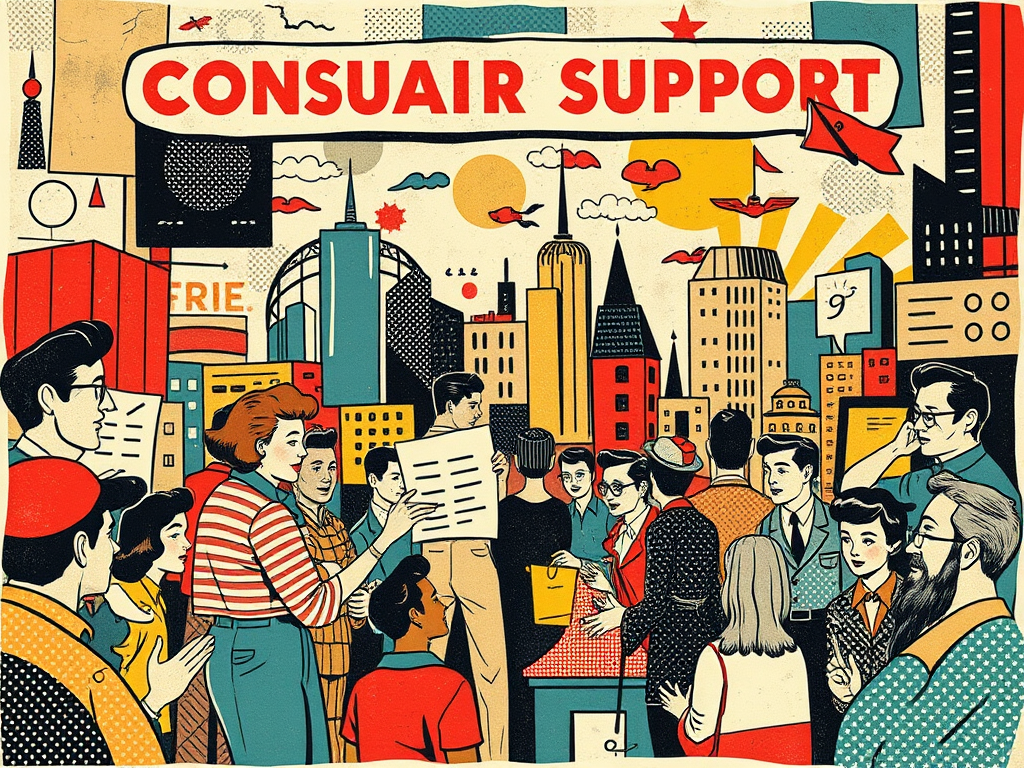
Emergency Planning: Consular Support for Golden Visa Holders in Crises
Reading time: 12 minutes
Table of Contents
- Introduction
- Understanding Golden Visa Programs
- The Role of Consular Support
- Emergency Planning for Golden Visa Holders
- Case Studies: Consular Support in Action
- Economic Implications of Golden Visa Programs
- Future Trends in Golden Visa Policies
- Conclusion
- FAQs
Introduction
In an increasingly globalized world, the intersection of international investment, residency rights, and diplomatic relations has given rise to complex scenarios that demand sophisticated emergency planning. Golden Visa programs, which offer residency or citizenship in exchange for significant investment, have become a popular tool for both nations seeking foreign capital and individuals looking for increased global mobility. However, these programs also present unique challenges when it comes to consular support during crises. This comprehensive analysis delves into the intricacies of emergency planning for Golden Visa holders, exploring the economic dynamics, diplomatic considerations, and practical implications of providing consular assistance to this distinct group of global citizens.
Understanding Golden Visa Programs
Golden Visa programs, also known as investor visas or citizenship by investment schemes, have gained significant traction over the past decade. These initiatives allow wealthy individuals to obtain residency or citizenship in a foreign country by making a substantial investment, typically in real estate, government bonds, or local businesses. Countries such as Portugal, Greece, and Malta have been at the forefront of such programs in Europe, while Caribbean nations like St. Kitts and Nevis have long-standing citizenship-by-investment options.
Economic Motivations Behind Golden Visas
The primary driver for countries offering Golden Visa programs is economic stimulation. These schemes can inject significant foreign capital into local economies, particularly in sectors like real estate. For instance, the Greek Golden Visa program has been a boon for the country’s property market, with many investors looking at houses for sale in athens as a means to secure residency rights while also making a potentially lucrative investment.
However, the economic impact of these programs extends beyond direct investment. Golden Visa holders often bring with them additional spending power, contribute to local job creation, and can serve as a bridge for international business connections. This multifaceted economic benefit has made Golden Visa programs an attractive policy tool for many nations looking to boost their economies.
The Role of Consular Support
Consular support is a critical service provided by governments to their citizens abroad. It encompasses a wide range of assistance, from issuing emergency travel documents to providing support during natural disasters or political upheavals. For Golden Visa holders, the nature of consular support can be more complex due to their unique status as both investors and residents or citizens of their host country.
Challenges in Providing Consular Support to Golden Visa Holders
Several factors complicate the provision of consular support to Golden Visa holders:
- Dual Nationality: Many Golden Visa programs lead to dual citizenship, which can create jurisdictional ambiguities in times of crisis.
- Limited Integration: Some Golden Visa holders may have limited ties to their host country, potentially complicating evacuation or relocation efforts.
- High-Net-Worth Individuals: The typical profile of a Golden Visa holder as a high-net-worth individual may necessitate specialized security considerations.
- Political Sensitivities: The presence of foreign investors with significant local assets can add a layer of diplomatic complexity to crisis management efforts.
Emergency Planning for Golden Visa Holders
Effective emergency planning for Golden Visa holders requires a collaborative approach involving multiple stakeholders, including government agencies, diplomatic missions, and private sector partners. Key components of a robust emergency plan should include:
Risk Assessment and Mitigation
A thorough understanding of potential risks specific to Golden Visa holders is crucial. This includes geopolitical analysis, assessment of natural disaster vulnerabilities, and evaluation of economic risks that could impact the value of investments tied to residency rights.
Communication Protocols
Establishing clear lines of communication between Golden Visa holders, local authorities, and home country consular services is essential. This may involve creating dedicated hotlines, leveraging digital platforms for real-time updates, and ensuring multi-lingual support.
Asset Protection Strategies
Given the significant investments often required for Golden Visa eligibility, emergency plans should incorporate strategies for protecting these assets during crises. This might include provisions for temporary asset freezes, expedited transfer procedures, or legal support for safeguarding investments.
Evacuation and Relocation Plans
Detailed evacuation protocols tailored to the unique circumstances of Golden Visa holders are critical. These plans should account for potential travel restrictions, the need for secure transportation of high-value assets, and coordination with multiple national authorities.
Case Studies: Consular Support in Action
Examining real-world instances of consular support for Golden Visa holders provides valuable insights into the challenges and best practices in this area:
The 2020 Beirut Explosion
The devastating explosion in Beirut’s port in August 2020 put Lebanon’s investor visa program to the test. Many foreign investors with Lebanese residency required immediate assistance, ranging from medical care to emergency repatriation. The incident highlighted the need for rapid response capabilities and the importance of maintaining accurate databases of Golden Visa holders’ locations and contact information.
COVID-19 Pandemic Response
The global COVID-19 pandemic presented unprecedented challenges for consular services worldwide. Golden Visa holders in countries like Portugal and Spain found themselves navigating complex travel restrictions and health protocols. This situation underscored the importance of flexible residency requirements and the need for clear communication channels between investors and host country authorities.
Economic Implications of Golden Visa Programs
The economic impact of Golden Visa programs extends far beyond the initial investment required for eligibility. These schemes can have profound effects on local real estate markets, job creation, and overall economic growth. However, they also raise concerns about wealth inequality and the potential for economic distortions.
Real Estate Market Dynamics
In many countries offering Golden Visa programs, the real estate sector has experienced significant growth. For example, in Greece, the Golden Visa scheme has been a key driver of property market recovery post-financial crisis. The influx of foreign investment has led to price appreciation in prime locations, benefiting existing property owners but potentially pricing out local buyers.
Job Creation and Economic Stimulation
Beyond direct investment, Golden Visa holders often contribute to local economies through ongoing spending and business activities. This can lead to job creation in sectors ranging from luxury retail to professional services. Additionally, the presence of high-net-worth individuals can attract further international investment and foster a more globalized business environment.
Fiscal Considerations
While Golden Visa programs can provide an immediate boost to government revenues through application fees and investment requirements, their long-term fiscal impact is more nuanced. Questions arise regarding the tax contributions of Golden Visa holders, particularly those who spend limited time in the host country. Balancing the economic benefits with potential strains on public services and infrastructure is an ongoing challenge for policymakers.
Future Trends in Golden Visa Policies
As the global landscape evolves, Golden Visa programs are likely to undergo significant changes. Several trends are emerging that will shape the future of these schemes:
Enhanced Due Diligence
In response to concerns about money laundering and security risks, many countries are implementing more stringent due diligence processes for Golden Visa applicants. This trend is likely to continue, with increased cooperation between nations to verify the source of funds and conduct background checks.
Diversification of Investment Options
To attract a broader range of investors and address criticisms about the impact on real estate markets, some countries are expanding the types of investments eligible for Golden Visa programs. This may include options for investing in start-ups, renewable energy projects, or cultural heritage preservation.
Integration Requirements
There is a growing emphasis on ensuring that Golden Visa holders develop genuine ties to their host countries. This may lead to the introduction of language proficiency requirements, minimum residency periods, or mandatory cultural integration programs as part of the visa conditions.
Environmental and Social Responsibility
As global awareness of environmental and social issues increases, Golden Visa programs may evolve to incorporate sustainability criteria. This could involve preferential treatment for investments in green technologies or social impact projects.
Conclusion
The intersection of Golden Visa programs and consular support presents a unique set of challenges and opportunities in the realm of international relations and economic development. As these programs continue to evolve, it is crucial for governments, investors, and policymakers to work collaboratively to ensure that emergency planning and consular support mechanisms are robust, responsive, and adaptable to the changing global landscape.
The economic benefits of Golden Visa schemes are significant, but they must be balanced against potential risks and societal impacts. By implementing comprehensive emergency planning protocols, enhancing due diligence processes, and fostering genuine integration of Golden Visa holders, countries can maximize the positive outcomes of these programs while mitigating associated risks.
As we look to the future, the success of Golden Visa programs will likely depend on their ability to adapt to emerging global challenges, from climate change to geopolitical shifts. By staying attuned to these trends and maintaining a commitment to responsible investment and effective crisis management, Golden Visa programs can continue to play a valuable role in fostering international cooperation and economic growth.
FAQs
- What is the primary purpose of a Golden Visa program?
Golden Visa programs are designed to attract foreign investment by offering residency or citizenship rights in exchange for significant financial contributions to the host country’s economy, typically through real estate purchases, business investments, or government bond acquisitions. - How does consular support differ for Golden Visa holders compared to traditional expatriates?
Consular support for Golden Visa holders can be more complex due to their unique status as both investors and residents or citizens. It may involve additional considerations such as asset protection, dual nationality issues, and heightened security needs for high-net-worth individuals. - What are some key components of effective emergency planning for Golden Visa holders?
Effective emergency planning should include comprehensive risk assessment, clear communication protocols, asset protection strategies, and detailed evacuation and relocation plans tailored to the specific needs of Golden Visa holders. - How do Golden Visa programs impact local real estate markets?
Golden Visa programs often lead to increased demand in local real estate markets, particularly in prime locations. This can result in property price appreciation, benefiting existing owners but potentially creating affordability challenges for local buyers. - What future trends are likely to shape Golden Visa policies?
Emerging trends in Golden Visa policies include enhanced due diligence processes, diversification of investment options, increased integration requirements for visa holders, and a growing focus on environmental and social responsibility in investment criteria.

Article reviewed by Charlotte Bennett, Senior Corporate Strategist | Mentor to Next-Gen Leaders | Navigating Business Transitions, on May 14, 2025
